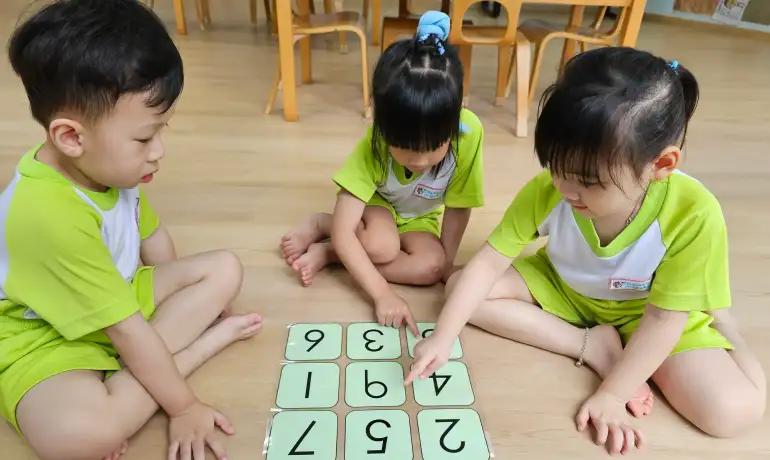Choosing a special needs preschool in Singapore is a major decision for any parent. Beyond lists and names, what matters most is how the school supports your child’s development, both academically and emotionally. With so many special needs preschool Singapore options available, it’s important to go beyond brochures and explore what truly works for your child. While many guides cover the basics, this article goes further to uncover the real-world factors that shape your child’s early learning journey.
1. Real Parent Experiences Speak Volumes
No one understands the journey better than parents who have walked it. Honest testimonials offer insight into how teachers handle emotional outbursts, how schools support progress, and how responsive staff are to parents. Join Facebook parenting groups or forums to find unfiltered stories about navigating special needs preschool Singapore options.
2. Fees, Facilities, and Services: What to Compare
Every special needs preschool in Singapore has a different fee structure, especially between government-supported and private institutions. When comparing, consider:
- Class size and teacher-student ratio
- Presence of in-house therapists (e.g., speech, OT)
- Shadow teacher or SEN aide availability
- Access to sensory rooms and quiet spaces
A higher price doesn’t always mean better quality, but knowing what’s included helps you assess real value.

3. Admission Timelines and Requirements
Admission into a special needs preschool Singapore can be competitive. You may need to apply up to a year in advance. Requirements often include:
- Developmental assessments from a paediatrician or psychologist
- Reports from early intervention professionals
- Trial or observation sessions
Be proactive and prepare documentation early. Don’t hesitate to ask schools about their intake schedules and waitlist policies.
4. Teacher Training Makes a Difference
Inclusion starts with the educators. Ask schools:
- Are the teachers trained in special education or ABA therapy?
- Do they receive ongoing professional development?
- Is there a SEN coordinator or learning support team on-site?
The more equipped the teachers are, the more confidently they can manage diverse learning needs within the classroom.
5. Inclusion in Practice, Not Just in Name
Inclusive classrooms sound ideal, but how inclusion is implemented matters. Look for:
- Mixed-ability group activities
- Flexible lesson plans
- Emotional regulation tools and calm-down zones
Ask how schools foster empathy and cooperation among all students. A truly inclusive special needs preschool Singapore should balance academic goals with emotional development.
6. What Comes After Preschool?
Graduating from a special needs preschool doesn’t mean the journey ends. Plan early for primary school placement. Depending on your child’s readiness, you might consider:
- Mainstream schools with Learning Support Coordinators (LSCo)
- SPED schools with specialised programmes
- Blended settings with continued therapy support
Understanding these options helps you prepare for a smooth and confident transition — especially when moving from a special needs preschool Singapore programme into a new academic environment.
7. Explore Non-Traditional Learning Paths
Some children benefit from customised approaches beyond InSP or SPED programmes. Alternatives include:
- Private early intervention centres
- Hybrid schedules (e.g., part-time school, part-time therapy)
- Home-based education with therapist collaboration
These setups offer personalised pacing and structure, though they may require more parental coordination.
8. The IEP Is a Living Document
The Individualised Education Plan (IEP) is more than paperwork. It’s a personalised plan that sets your child’s goals and strategies. Be an active participant by:
- Attending all IEP meetings
- Communicating regularly with your child’s educators
- Asking for progress updates and adapting goals as needed
A strong IEP helps your special needs preschool Singapore stay aligned with your child’s growth.
9. Daily Logistics Matter More Than You Think
Getting to and from school can make or break your child’s day. Ask:
- Does the school offer special transport for SEN students?
- Are transport staff trained in behaviour management?
- How long is the daily commute?
Make travel part of your school decision. A short, predictable, and comfortable routine helps children feel safe and settled.
10. Beyond the Books: Holistic Development
Look for schools that support your child’s full development. Enrichment activities such as music, art, movement, and play therapy build confidence and communication. Ask whether:
- There are inclusive extracurricular programmes
- The school partners with external therapy providers
- Activities are adapted for sensory and social needs
A well-rounded special needs preschool Singapore doesn’t stop at academics.
Frequently Asked Questions (FAQ)
Q: At what age can a child start in a special needs preschool in Singapore?
Most centres start from 18 months to 6 years old, depending on developmental needs and school capacity.
Q: Can my child go from special needs preschool to mainstream primary school?
Yes. Many children transition successfully, especially when supported by tailored preparation, family involvement, and programmes like InSP.
Q: Are there any subsidies available for special needs preschool Singapore options?
Yes. Government programmes such as InSP and SPED offer subsidies based on household income. More details are available at ECDA.
Ready to Take the Next Step?
If you’re searching for a nurturing, inclusive space for your child to grow, we’re here to support you every step of the way. The right special needs preschool Singapore can make all the difference in your child’s early development, setting the stage for lifelong learning, independence, and joy.

👉 Contact Little Unicorn Preschool or explore our programmes at littleunicornpreschool.com



